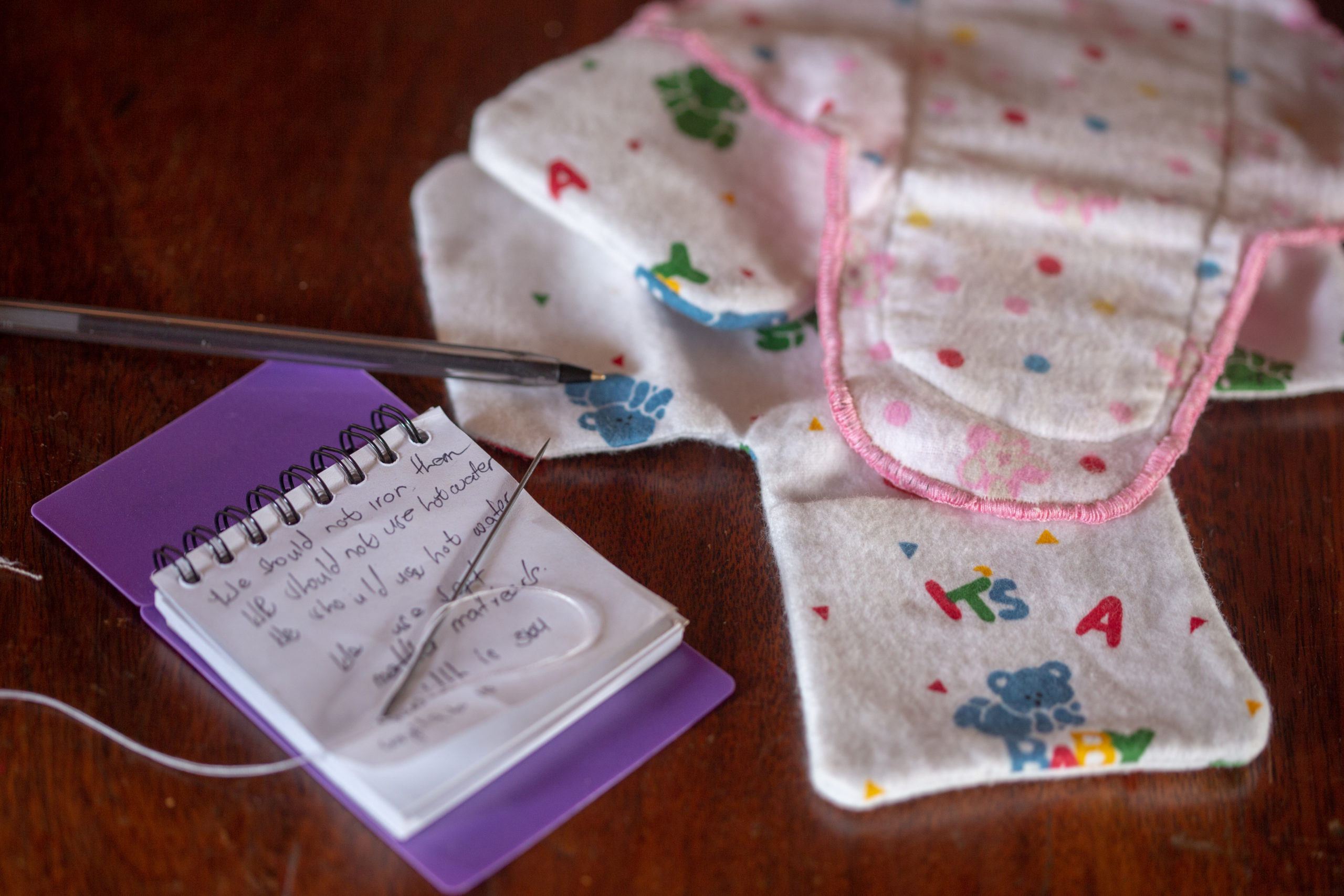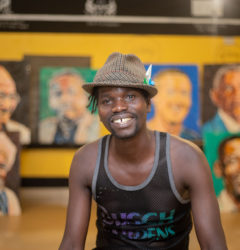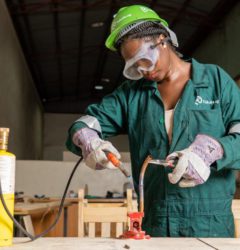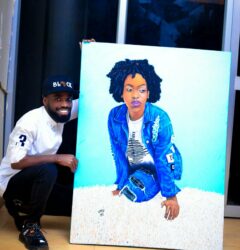11 Feb

Bernadette Ojao, is a lively young woman and a mother of 3 children in pursuit of a dream to ease menstrual hygiene with affordable and sustainable pads in Uganda.
Hailing from Karamoja Sub-region, and having grown up in the slums of Kamwokya for 13 years, Bernadette’s childhood was challenging. This was due to high levels of poverty that led to deprivation of basic requirements during her childhood including failure to complete her ordinary level of education. In order to be able to provide for her requirements, Bernadette tried to look for work and she has worked as a waitress, a cleaner, a receptionist and a cook at a Chinese restaurant and a sales-girl. While doing her job as a sales girl, she was inspired to start her own and sell her own products. In 2017, she decided to start something that she could do with her own hands. This was after a friend had left her with a sewing machine while leaving for her home country indefinitely. Without prior knowledge on how to use a sewing machine, Bernadette tinkered with the machine until she learned how to use it for her creative work.
Towards the end of 2018, a visit to Nakivale refugee camp by Bernadette during a documentary shoot led her to discover the pressing need of menstrual hygiene products among refugee women and girls. No stranger to this problem regarding access to affordable pads, Bernadette recounts how during teenage years, the sanitary pads on the market were too expensive for her mother to buy more than one packet which was less than enough for her periods. This prompted her to seek alternatives that barely worked and were also unhealthy. It’s here that she found an opportunity for business.
Wondering what to do about it, Bernadette went to the internet where she discovered reusable pads on YouTube which she decided to try out on her sewing machine. She made her first pad with limited materials that her young sisters used and commended them as really comfortable more than regular pads. This gave her more courage and she created a page on social media where upon uploading an image of the reusable pads she had made, she was invited to train various people, individuals, schools and organizations. In January, she was set to train in South Sudan, however, when the pandemic struck, she put it on halt. In 2019, she decided to create the Company that she named “Pads For Her”, to address the challenges of menstrual hygiene through making affordable and reusable pads and providing skills trainings for individual and companies interested in producing the same.
Bernadette was lucky to be among the beneficiaries of Well Being Foundation from which she received 17 pounds. She used the grant to purchased raw materials to make her first batch of 100 pads that were given to marginalized women among whom were sex workers and street women.
That donation was followed by a request for 200 pads which were paid for by the same Foundation. This propelled them further into business and in formal partnership with Well Being Foundation. With a team of five, herself assisted by 5 women on the sewing work and 2 men on the packaging, she has managed to run the business through gathering more partnerships.
In 2020, Bernadette got in touch with The Innovation Village through the Ghetto Research Lab where she participated in art projects. She pitched her idea of sustainable reusable pads and got funds to further her dream by using some pay for rent space, procure machines, hire a team and purchase raw material.
With the support that was received, Pad For Her has managed to pay rent for 6 months, buy 1 overlock machine, 12 industrial stitch machines, 2 semi industrial or zig zag machines, 1 industrial cutter, 5 snap machines, 10 rolls of flannel and 100 pieces of toweling to be used in the pads. For their packaging they have managed to collect 600 wasted polythene bags for recycling, bought 200 packs of zippers for packaging, a roll of tetron material to use for the pads and furniture for the Pads For Her office.
Pads For Her makes 150 pads per day, sold 400 pads so far, donated 100 pads, trained 53 young women who will go ahead to train more women to make pads by hand or machines. The biggest challenge encountered is in relation to finding a market for these products and also finding a fair price to both customers and the company. A packet of 4 pads which currently goes for 20,000 while it’s fair in market value, the cost of production is still something that Pads For Her is struggling to deal with.
At their office in Najjera, Bernadette Ojao and her team continue to work on their big dream of having production units of Pads For Her in every district in Uganda and carrying out training all over the country and on the continent, pandemic or not.










Recent Comments